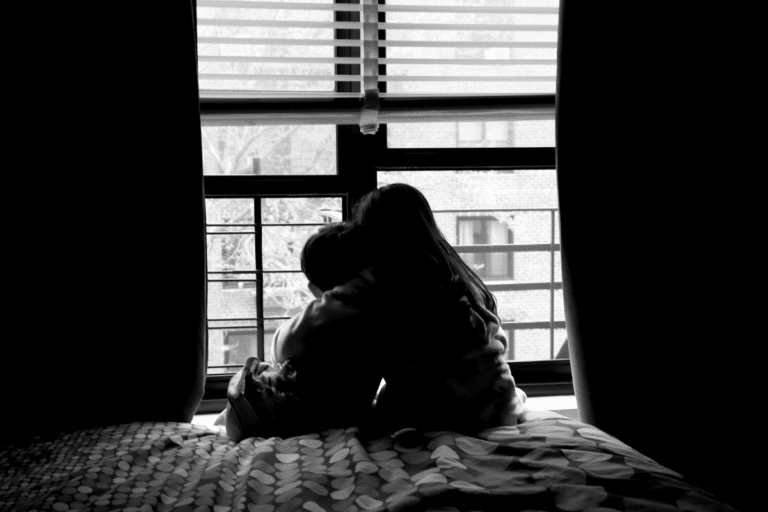
Parenting often comes with moments of resistance — a child saying “no” to bedtime, refusing homework, or testing rules. But when defiance becomes persistent, disruptive, and emotionally draining, it may be more than typical childhood behavior. Oppositional Defiant Disorder (ODD) is a condition that can deeply impact family life, school progress, and relationships. Understanding what ODD is and how to respond can make a meaningful difference for children and their caregivers.
What is ODD?
Oppositional Defiant Disorder (ODD) is a behavioral condition marked by an ongoing pattern of anger, irritability, and defiance toward authority figures. These behaviors are more frequent and intense than what’s expected for a child’s age and often last for six months or longer.
ODD is not just a phase of “bad behavior.” It’s a recognized mental health disorder described in the Diagnostic and Statistical Manual of Mental Disorders (DSM-5). Children with ODD may struggle at home, in school, and in social situations, leading to stress not only for them but for their families as well. Estimates suggest that ODD affects about 3% of children, making it one of the more common behavioral disorders in childhood.

Symptoms Of Oppositional Defiant Disorder
Children with ODD often display behaviors that fall into three main categories:
- Angry and irritable mood – frequent temper outbursts, being easily annoyed, and often feeling resentful.
- Argumentative and defiant behavior – consistently arguing with adults, refusing to follow rules, or deliberately pushing limits.
- Vindictiveness – acting spiteful or seeking revenge, usually seen more than once over several months.
It’s important to note that occasional defiance is part of growing up. What makes ODD different is the frequency, intensity, and impact of these behaviors. For many children, symptoms appear across settings — at home, school, and with peers — which helps clinicians distinguish ODD from situational conflict.
What Is The Cause Of Oppositional Defiant Disorder?
The exact cause of ODD isn’t fully known, but research suggests it arises from a mix of biological, psychological, and social factors.
- Biological factors – Some children are naturally more irritable or have difficulty regulating emotions. Differences in brain structure and neurotransmitter functioning may also play a role.
- Genetic influences – ODD often appears in families with a history of mood disorders, ADHD, or substance use.
- Family and environment – Inconsistent discipline, high levels of conflict, or exposure to stress can increase the risk.
- Co-occurring conditions – ODD often occurs alongside ADHD, anxiety, or learning difficulties, which can intensify behavioral struggles.
Most experts agree that ODD doesn’t stem from a single cause. Instead, it develops from an interaction of a child’s temperament and their environment.
How To Help A Child With Oppositional Defiant Disorder?
When oppositional behavior becomes overwhelming, many parents wonder what they can realistically do. While it can feel frustrating and isolating, effective strategies exist.
- Seek a professional evaluation. A pediatrician, child psychiatrist, or psychologist can help determine whether behaviors meet the criteria for ODD and identify co-occurring conditions like ADHD or anxiety.
- Parent-focused therapy. Programs such as Parent Management Training (PMT) and Parent–Child Interaction Therapy (PCIT) are widely supported by research. These approaches teach caregivers how to reinforce positive behaviors, set consistent boundaries, and reduce conflict cycles.
- Collaborative Problem Solving (CPS). This approach encourages families to work with the child in solving recurring problems together, focusing on skill-building rather than punishment.
- Therapy for children. Cognitive-behavioral therapy (CBT) helps older children build emotional awareness, problem-solving, and coping skills.
- School involvement. Teachers and school counselors can work with families to create consistent expectations and support plans in the classroom.
- Medication. While not a primary treatment for ODD, medications may be recommended if ADHD, anxiety, or other mental health conditions are present and contributing to behaviors.
What Does Oppositional Defiant Disorder Look Like In Children?

ODD doesn’t look the same in every child.
- Preschool years – frequent temper tantrums, refusing simple instructions, or constant power struggles.
- School-age years – arguing with teachers, deliberately breaking rules, or blaming others for mistakes.
- Adolescence – more persistent defiance, verbal aggression, or strained relationships with peers and authority figures.
A useful guideline is to look at the pattern, persistence, and impact. When these behaviors consistently interfere with relationships, academics, or family life, it may point toward ODD rather than occasional defiance.
Frequently Asked Questions (FAQs)
- At what age does ODD usually start?
ODD typically begins during preschool years but can be recognized later in childhood. Early signs often appear as frequent tantrums and defiance. - Can ODD go away on its own?
While some children outgrow defiant behaviors, untreated ODD often continues into adolescence. Early intervention with therapy and parent-focused programs offers the best outcomes. - How common is ODD?
Studies suggest ODD affects about 3–4% of children and is one of the most frequently diagnosed disruptive behavior disorders. - What is the most effective treatment for ODD?
Parent training programs such as PMT and PCIT are considered the most effective first-line treatments. They teach caregivers tools that consistently reduce conflict and improve behavior.
Final Thoughts
Raising a child with oppositional behaviors can be exhausting, but ODD is treatable. With the right support — parent training, therapy, and school collaboration — many children learn healthier ways to manage emotions and build stronger relationships. Early recognition and intervention are powerful steps toward change.
Responsibly edited by AI
Other Blog Posts in
Animo Sano Psychiatry is open for patients in North Carolina, Georgia and Tennessee. If you’d like to schedule an appointment, please contact us.
Get Access to Behavioral Health Care
Let’s take your first step towards. Press the button to get started. We’ll be back to you as soon as possible.ecovery, together.





